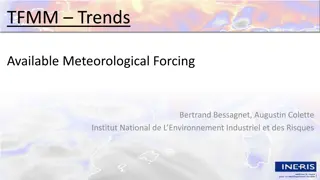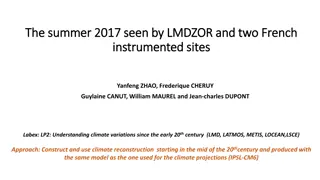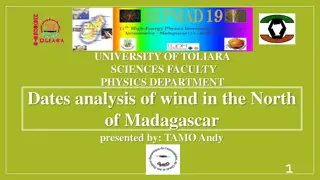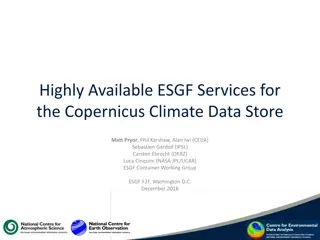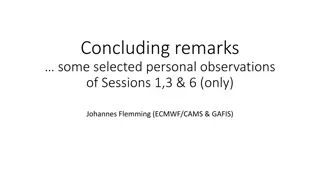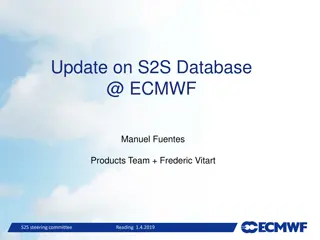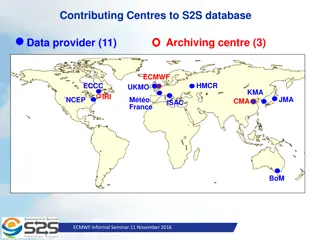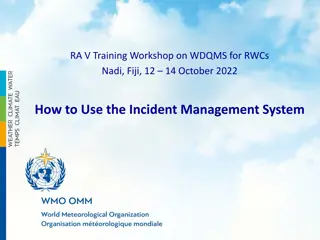Meteorological Forcing Trends and Hindcasts for Climate Research
The content discusses the available meteorological forcing trends analyzed by Bertrand Bessagnet and Augustin Colette from Institut National de L'Environnement Industriel et des Risques. It explores the rationale behind using ECMWF/IFS for recent campaign analyses and the need to find a consistent 1
0 views • 5 slides
Insights into Summer 2017 Climate Variations and Heatwave Events
Climate research using climate reconstructions and model simulations for summer 2017, focusing on heatwave periods and temperature anomalies. Observations from instrumented sites and atmospheric soundings were utilized to analyze air temperature, soil moisture, and radiation. The study highlights th
0 views • 22 slides
Analysis of Wind Patterns in North Madagascar: A Study by University of Toliara
University of Toliara's Physics Department conducted a study on wind patterns in the North of Madagascar, focusing on interannual variability. The study analyzed meteorological data from 1979 to 2017, using MATLAB software and ECMWF data. The research aims to understand the wind seasons, characteris
0 views • 14 slides
Highly Available ESGF Services for the Copernicus Climate Data Store
The Copernicus Climate Data Store (CDS) is a crucial component of the Copernicus Climate Change Service (C3S) operated by ECMWF for the European Union. It offers a unified interface for climate-related data and supports various sectors with key climate change indicators. To ensure the availability o
0 views • 16 slides
Advances in Operational Air Quality Forecasting and Data Assimilation
Key observations and advancements in operational air quality forecasting and data assimilation were highlighted in sessions featuring prominent experts from various organizations like ECMWF/CAMS, GAFIS, NOAA, and ECCC. Topics discussed ranged from progress and challenges in air quality forecasting i
0 views • 12 slides
Insights into ECMWF's S2S Database and Usage Statistics
Delve into the latest updates and statistics regarding ECMWF's Subseasonal-to-Seasonal (S2S) Database, including news since September 2018, current status, cooperation with data providers, usage statistics, activity reports, and future plans discussed in the S2S steering committee meeting on April 1
0 views • 21 slides
Enhancing Subseasonal-to-Seasonal Forecasting with S2S Database Archiving
Explore the contributions of key centers like ECMWF, ECCC, UKMO, and others to the S2S database archiving, detailing the models, data providers, and current status. Learn about plans to add new variables, extend access to researchers, and integrate ocean data into the MARS system for enhanced foreca
0 views • 11 slides
Understanding Incident Management System for Regional WIGOS Centres
Incident Management System (IMS) plays a crucial role in resolving issues within the WIGOS Data Quality Monitoring System (WDQMS) process for Regional WIGOS Centres (RWCs). IMS for RWCs is a key operational tool alongside OSCAR/Surface and WDQMS Webtool. It is hosted by the European Centre for Mediu
0 views • 12 slides
